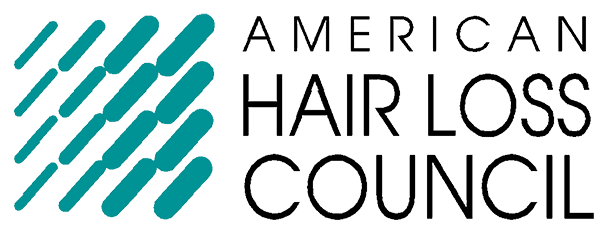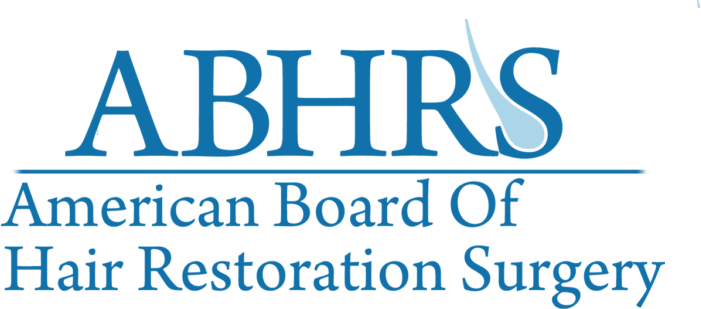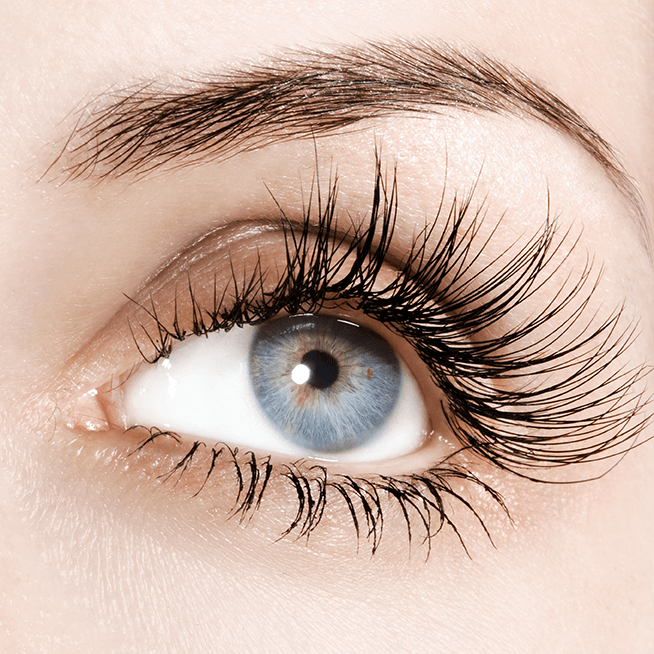Could Holiday Hair Loss Really Be a Thing?
AARP Article by Lois Joy Johnson, Featuring Dr. Alan J. Bauman of Bauman Medical in Boca Raton, Florida – Nov. 28, 2016
At first I thought I was imagining it: Every Jan. 1, my already-fine hair seemed to look thinner than it had at Thanksgiving.
Then, last week, I talked with a hair expert who cleared up the mystery of the missing locks. Plenty of 50+ women, it turns out, complain about this seasonal syndrome. So even if I never recapture my Melania Trump mane, I do expect what’s left to last! Here are a few ways you, too, can save your scalp.
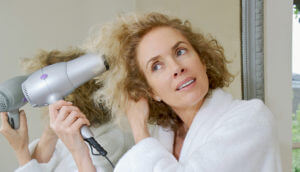
Plenty of 50+ women complain about the seasonal syndrome of thinning hair. — Getty Images
Learn to handle holiday stress. With its weird ability to telescope time, the period from mid-November to New Year’s Day has a million ways to stress you out: work parties and work deadlines, family get-togethers that seem to go on forever, gift shopping, crowds, travel chaos and more.
According to Alan J. Bauman, M.D., a Boca Raton, Fla., specialist in hair loss and restoration, “elevated levels of cortisol — a type of steroid hormone produced by the adrenal gland — can contribute to temporary hair loss. This is known as telogen effluvium, or excessive shedding.” Add in other factors affecting our menopausal hair follicles — lack of sleep, poor nutrition, hormonal wackiness — and the result is wimpy hair.
Enough with the crash dieting already! Have you had your OMG moment on the bathroom scale this month? If so, you’re right on schedule. I think we’re all struggling to fit into those jeans (or that drop-dead dress) as the holiday countdown begins.
But proceed with caution, please. “Deprive your body of nutrition,” warns Dr. Bauman, “and you will see some degree of hair fall, depending on the length and severity of the diet. The most common triggers of damaged locks are caloric, iron and protein deficiencies. When your body thinks it’s starving, it doesn’t manufacture ‘luxury’ items such as hair.”
So eat more healthfully — including foods containing vitamins A, B and C, the mineral zinc and omega-3 fatty acids — and exercise more. I think you’ll find it’s easier to hold on to your hair than it is to regrow it.
Stop overglamming. “A less invasive approach to color and heat styling can minimize hair-fiber breakage,” Dr. Bauman advises. You can start by using a lower heat setting on your hair dryer and holding the nozzle at least 10 inches away. If you use a round brush to blow-dry your hair, avoid putting tension on the brush. For gentle, more diffused heat, consider rollers and a hooded dryer. Or try the old wrap method, using your head as a single giant roller while bobby-pinning your hair in place until it dries. Finally, if you color or highlight your tresses, return them nearer to your natural hair color.
Choose products that plump you up. “Ingredients such as panthenol, caffeine and niacinamide can help improve thin, aging hair” over time, notes Dr. Bauman. (To quickly add volume, by contrast, try a texturizing spray or a thickening mousse.) But whatever you do, he cautions, don’t rush into an action you’ll regret later on. “Minoxidil is the active ingredient in many hair-loss regimens for women with hereditary hair loss,” he says, “but never start a minoxidil routine out of sheer panic; the medication can also cause major scalp irritation.”
Embrace texture. “Thinning occurs in every type of hair texture,” Dr. Bauman says. But natural waves or curls, with their irregular pattern, afford greater “scalp camouflage” than stick-straight hair with a defined part.
For anyone in the latter category, try these fast fixes to make thin hair look lush.
- Bend at the waist and blow-dry your hair from the underside, using your fingers to tousle it for movement and fullness.
- Switch your customary part to the other side, creating more lift at the roots.
- Rather than a razor-straight part, do a messy, zigzag one instead; this disguises thinning at the scalp and adds oomph to your roots.
If you or someone you know has hair loss, hair thinning, baldness, or eyebrow / eyelash concerns, click to start either a long-distance virtual consultation OR an in-person, in-office consultation with Dr. Bauman. You can also Ask Dr. Bauman a Question or simply call Bauman Medical Group at +1-



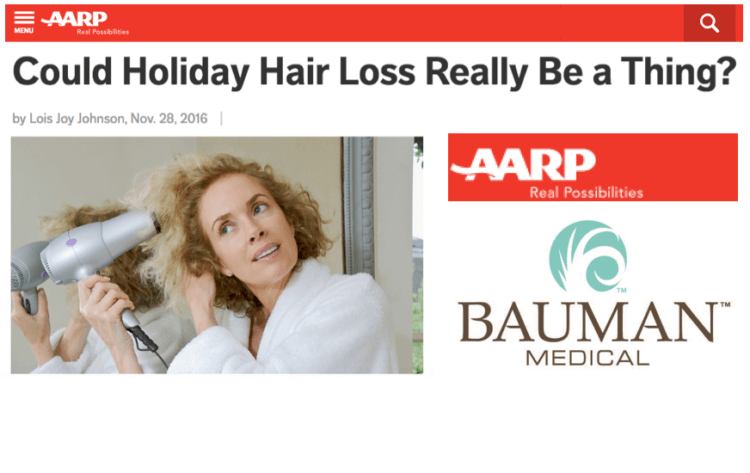
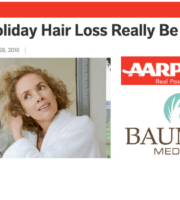 ARTICLE: Could Holiday Hair Loss Really Be a Thing?
ARTICLE: Could Holiday Hair Loss Really Be a Thing? VIDEO: Hair Renewal – Expert Techniques for Transplant Touchups
VIDEO: Hair Renewal – Expert Techniques for Transplant Touchups Soothe stress and improve hair with this free gift
Soothe stress and improve hair with this free gift Looking for the Best in Hair Restoration? Why Bauman Medical Stands Out.
Looking for the Best in Hair Restoration? Why Bauman Medical Stands Out. Dr. Alan J. Bauman, M.D.Hair Loss & Hair Transplant ExpertBoca Raton, FL
Dr. Alan J. Bauman, M.D.Hair Loss & Hair Transplant ExpertBoca Raton, FL